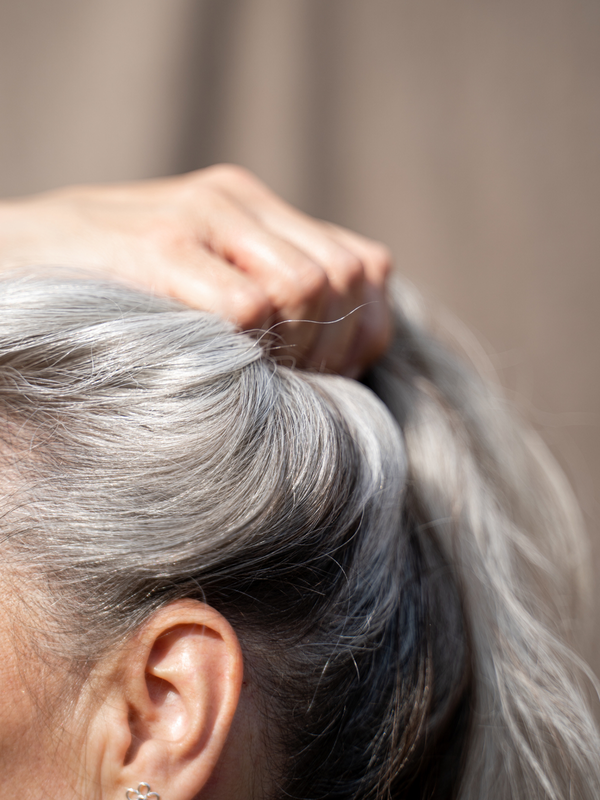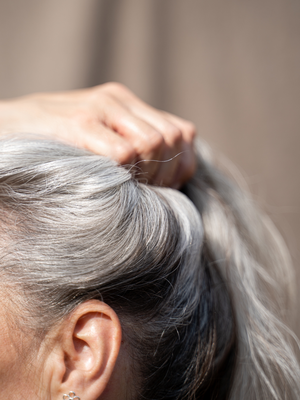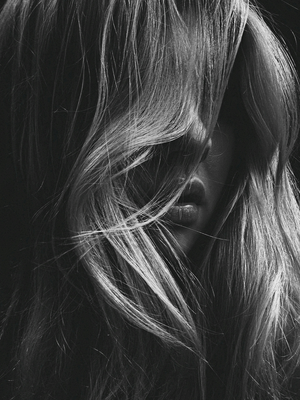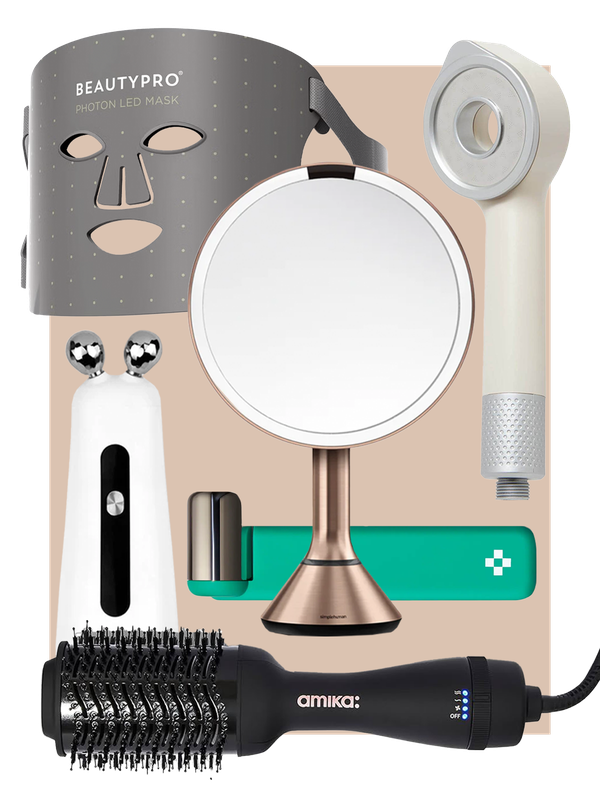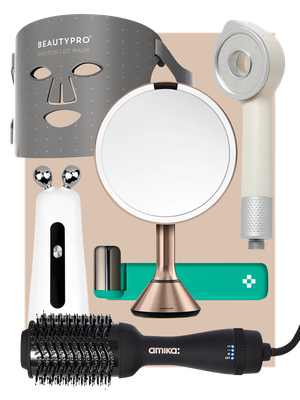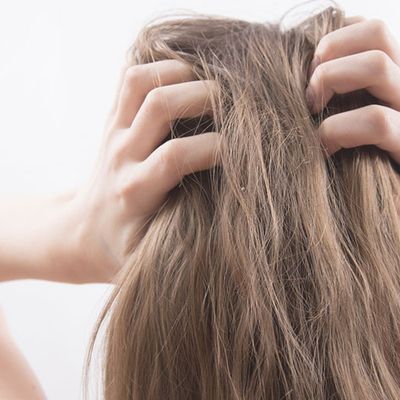
Why You’re Suffering From Scalp Irritation & How To Treat It
Try To Shampoo More Frequently
It sounds really simple, but infrequent shampooing can contribute to scalp problems as it leaves excess oils sitting on your scalp. Certain yeasts (called the Malassezia yeasts) thrive in an oily environment, when these overgrow, your scalp can become flaky and irritated. Just like your skin, your scalp contains sweat and sebaceous (oil) glands, and it is constantly replacing old skin cells with new ones, so you need to clean it just the same. Your scalp is also exposed to the same environmental pollutants as the skin on your face. It’s also a myth that changing bed sheets and pillows regularly will help with an irritated scalp – this is only feasible if you’re sensitive or allergic to your laundry detergent.
Reduce Your Stress Levels (Where Possible)
Your scalp can be so affected by hormonal fluctuations that stress causes. Specifically, stress spikes cortisol (aka stress hormone) levels, which can increase sebum (oil) production on your scalp. Stress hormones can also disrupt the skin’s barrier function, and trigger skin irritation and inflammation. This is why you may find that your scalp gets itchy, flaky and overly sensitive and greasy when you are going through a stressful period. People who suffer from scalp conditions such as psoriasis and dandruff often find their condition is caused or worsened by stress. To try and treat it yourself, look out for a scalp toner that contains Camphor – a soothing and cooling active. Witch Hazel is key too, it’s an astringent ingredient that works to soak up excess oil.
Keep An Eye On Hormonal Shifts
Hormonal shifts during your menstrual cycle can impact your scalp heavily. For instance, leading up to and during your period, you may find your scalp becomes oilier, which in turn, can trigger flaking and itching if you are pre-disposed to dandruff. Also, many women find their skin and body is generally more sensitive during their period and this can also involve your scalp. Aside from hormones, dandruff occurs when certain yeasts over-proliferate and the microflora of your scalp becomes imbalanced, certain individuals may also be sensitive to normal levels of naturally occurring yeasts. The best way to treat it is with consistency. Use a daily shampoo as when you don’t shampoo, dead skin cells start to accumulate on your scalp and become visible through your root area. Look to shampoos that contain an anti-microbial active such as Piroctone Olamine, this anti-fungal ingredient specifically targets the yeast responsible for dandruff and helps to rebalance your scalp’s microflora.
Know Your Dietary Triggers
Similar foods that affect the skin on your face can impact your scalp. For instance, full fat dairy products, like cheese, as well as very sugary and spicy foods, can flare-up a problematic scalp. Other scalp aggravators are white wine, champagne, and red peppers. Trigger foods are not the same for everyone, it’s best to use a process of elimination. Eating foods rich in Omega 3, and taking an Omega 3 supplement, may also help. I recommend our Philip Kinglsey Root Complex Supplement, which contains Omega 3, Vitamin D, Marine Collagen and Coenzyme Q10 – all of which have been shown to have anti-inflammatory properties and can be beneficial to those with a problematic scalp.
Always Wear A Hat In The Sun
Your scalp can burn, just like the skin on your face. Initially, this can lead to discomfort, flaking and peeling. Long term, repeated sun exposure may result in serious changes on a cellular level, such as skin cancer. To combat the harsh effects of UV, use a daily rehydrating scalp toner containing ingredients such as Sodium Salicylate – an anti-inflammatory and anti-irritant active that helps to soothe the scalp. I also recommend applying a moisturising scalp mask twice a week. Opt for one that contains ingredients such as aloe vera, and mild exfoliators like Betaine Salicylate.
Understand When It Could Be A Sign Of Something More Serious
If your scalp is very sore, and is accompanied by marked areas of redness, inflammation and irritation, you should make an appointment to see a trichologist or dermatologist. Other signs to look out for are thick, white plaques and bleeding, oozing, crusting or scabbing. You should also always seek advice if your scalp irritation is accompanied by hair loss. If you’re still confused by symptoms, and how each condition usually presents itself, I’ve broken it down as a general guide below. But if symptoms are unusual for you, or you’re not seeing signs of it clearing after a few days, always seek out an expert’s advice before the situation worsens.
PSORIASIS: An auto-immune condition.
WHAT DOES IT LOOK LIKE: This usually presents as thick, white and tight plaques that have bleeding points underneath.
FOLLICULITIS: Inflammation of the hair follicle usually caused by bacteria or fungi.
WHAT DOES IT LOOK LIKE: Usually caused by picking at pimples on your scalp, this appears as small red bumps or white-headed pimples located around hair follicles. If it spreads, these can turn into crusty sores.
CHEMCIAL OR THERMAL BURNS: Caused by straighteners, bleach or colouring agents.
WHAT DOES IT LOOK LIKE: Peeling patches, redness and severe flakiness.
CONTACT DERMATITIS: From an irritant or allergen, like certain shampoos or something else external that’s that's reactive.
WHAT DOES IT LOOK LIKE: Looks-wise, it’s very similar to eczema, this appears in red and white patches throughout the scalp, often in clusters.
DISCLAIMER: We endeavour to always credit the correct original source of every image we use. If you think a credit may be incorrect, please contact us at info@sheerluxe.com.
